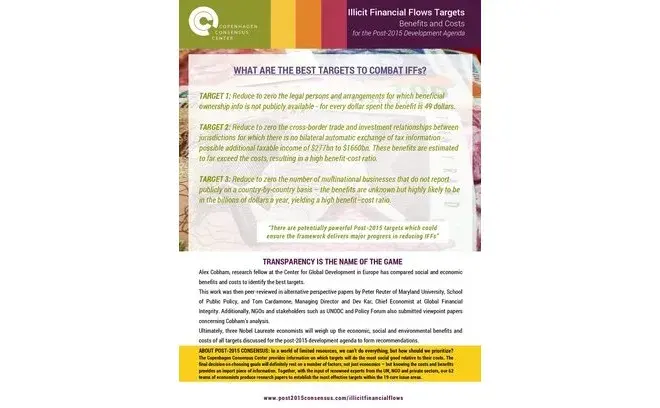Illicit Financial Flows
For each of the three proposed targets, there is currently insufficient evidence to provide precise benefit-cost analyses. However, available data indicate that in even the most conservative scenarios, they are likely to exhibit high ratios of benefit to cost.
Targets with the highest benefit-cost ratios are:
- Reduce to zero the legal persons and arrangements for which beneficial ownership info is not publicly available – for every dollar spent the benefit is 49 dollars.
- Reduce to zero the cross-border trade and investment relationships between jurisdictions for which there is no bilateral automatic exchange of tax information - possible additional taxable income of $277bn to $1660bn. These benefits are estimated to far exceed the costs, resulting in a high benefit-cost ratio.
- Reduce to zero the number of multinational businesses that do not report publicly on a country-by-country basis – the benefits are unknown but highly likely to be in the billions of dollars a year, yielding a high benefit-cost ratio.
The following targets are relatively ineffective or there is large uncertainty regarding the benefit-cost ratio:
- Reduce illicit financial flows by $x
- Reduce tax evasion by $x
- Increase stolen asset recovery by $x
Scroll down to read our series of reports examining IFF targets for the post-2015 development agenda, written by leading economists and experts.
Assessment Paper
The aim of the assessment paper, commissioned by the Post-2015 Consensus project and written by economist Alex Cobham, research fellow at the Center for Global Development in Europe, is to examine the costs and benefits of potential targets to combat illicit financial flows. This paper provides a tentative analysis of the measures proposed by the UN High Level Panel, finding that while the Panel's recommendations are flawed, there are potentially powerful post-2015 targets which could ensure the framework delivers major progress in reducing illicit financial flows, including tax evasion and theft of state assets.
The specific [UN High Level Panel] proposal is flawed – but this does not imply that it should be dropped, rather that alternatives be developed."
- Alex Cobham
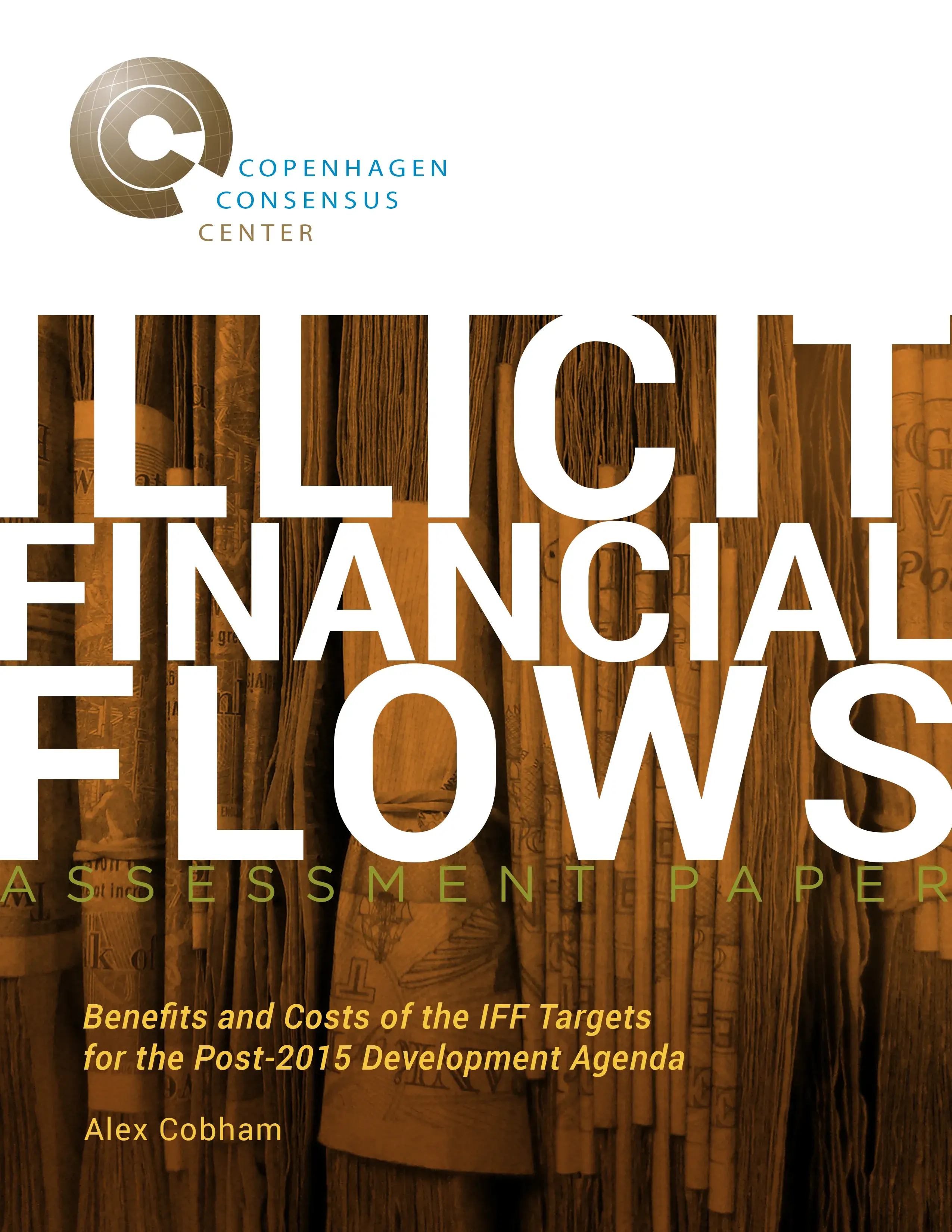
Perspective Paper
Peter Reuter, Professor in the School of Public Policy at Maryland University commends Cobham’s attempt to improve on the High Level Panel’s objective in regard to illicit financial flows. However, he expresses great skepticism about the plausibility of Cobham’s estimates of the benefits and costs of implementing a set of measures aimed at illicit financial flows.
We need to know more about both the phenomenon itself and about the effects of different interventions."
- Peter Reuter
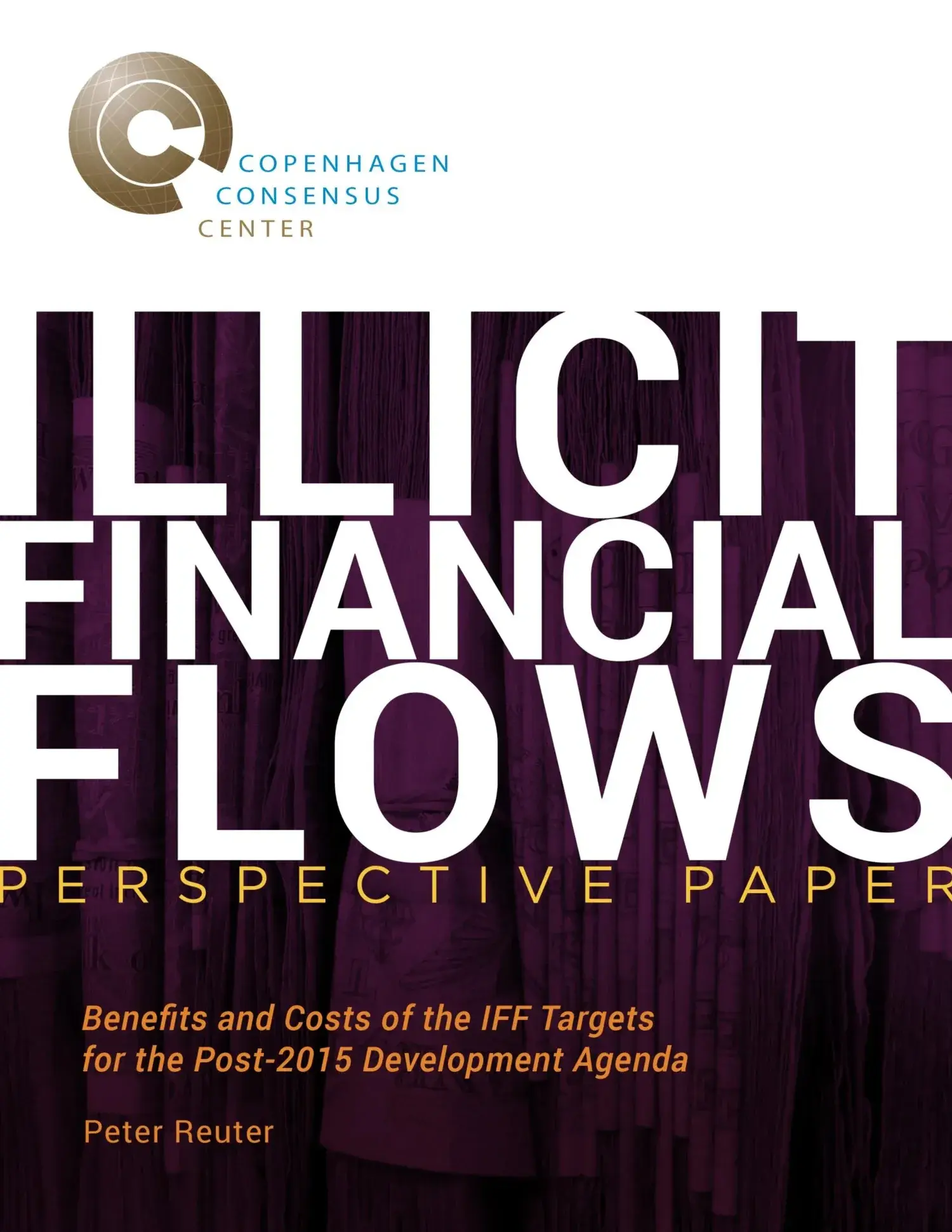
Perspective Paper
Tom Cardamone and Dev Kar of Global Financial Integrity commends the paper by Alex Cobham for being very thorough and professional in analyzing the High Level Panel’s targets related to reducing illicit financial flows. However, the perspective of Global Financial Integrity differs on a number of points. Instead, this perspective paper presents a narrow SDG target on illicit financial flows which retains the very focused nature of the High Level Panel’s original version while incorporating a proportional measure to indicate progress.
Global Financial Integrity agrees with Cobham in several instances. For example, GFI concurs that the HLP’s original three targets to reduce illicit flows and tax evasion, and increase asset recovery were undermined by framing them in dollar rather than percentage terms.”
- Tom Cardamone and Dev Kar
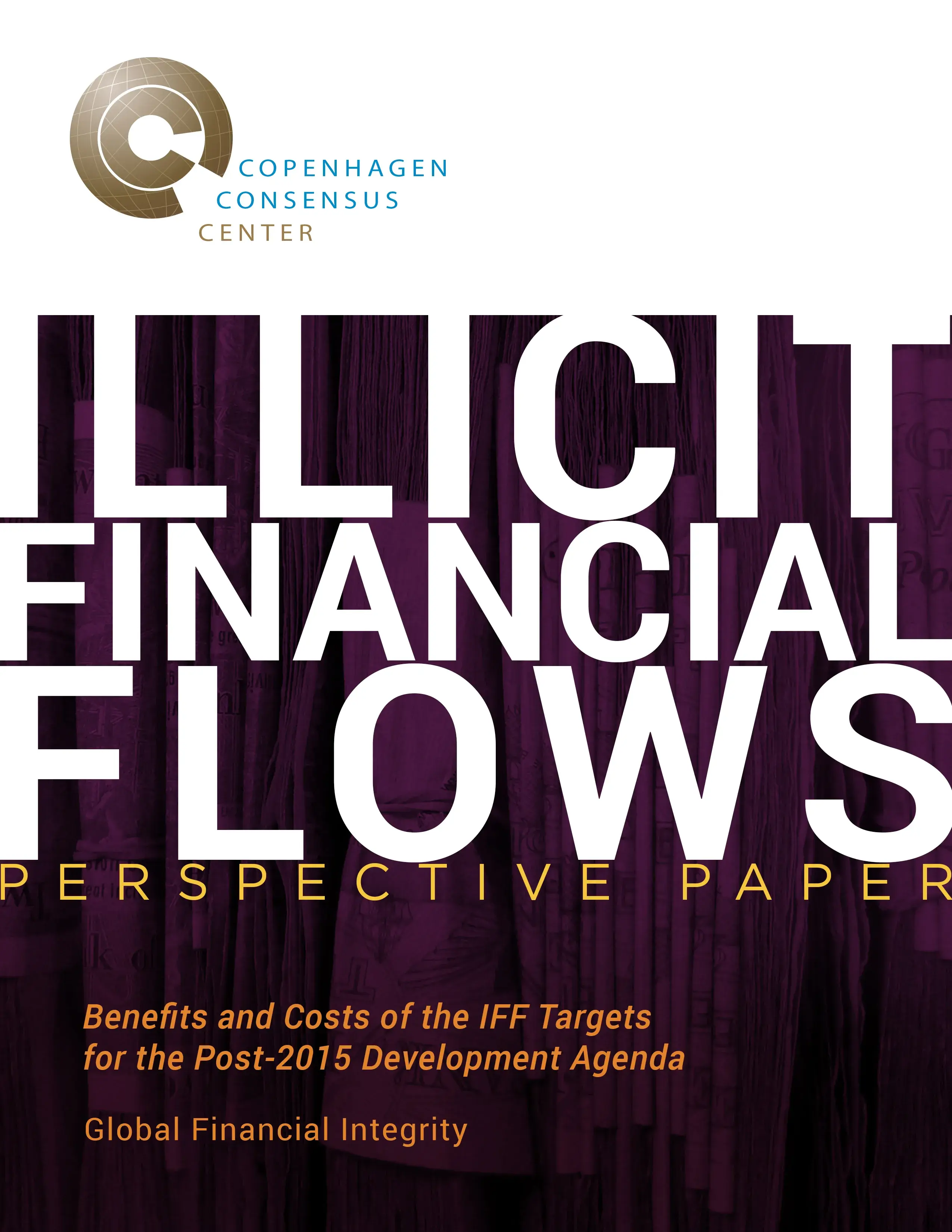
Viewpoint Paper
The viewpoint of Angela Me of UNODC, finds that the assessment paper by Alex Cobham does not discuss the normative framework for anti-money laundering or countering the financing of terrorism. Furthermore, the paper does not comprehensively discuss the flows themselves or the flows of illicit goods and services. The paper could be much improved by a solid grounding in the framework of the UN conventions.
[The assessment paper] makes a useful appeal for the development and monitoring of indicators which could measure the effectiveness of policies and interventions."
- Angela Me
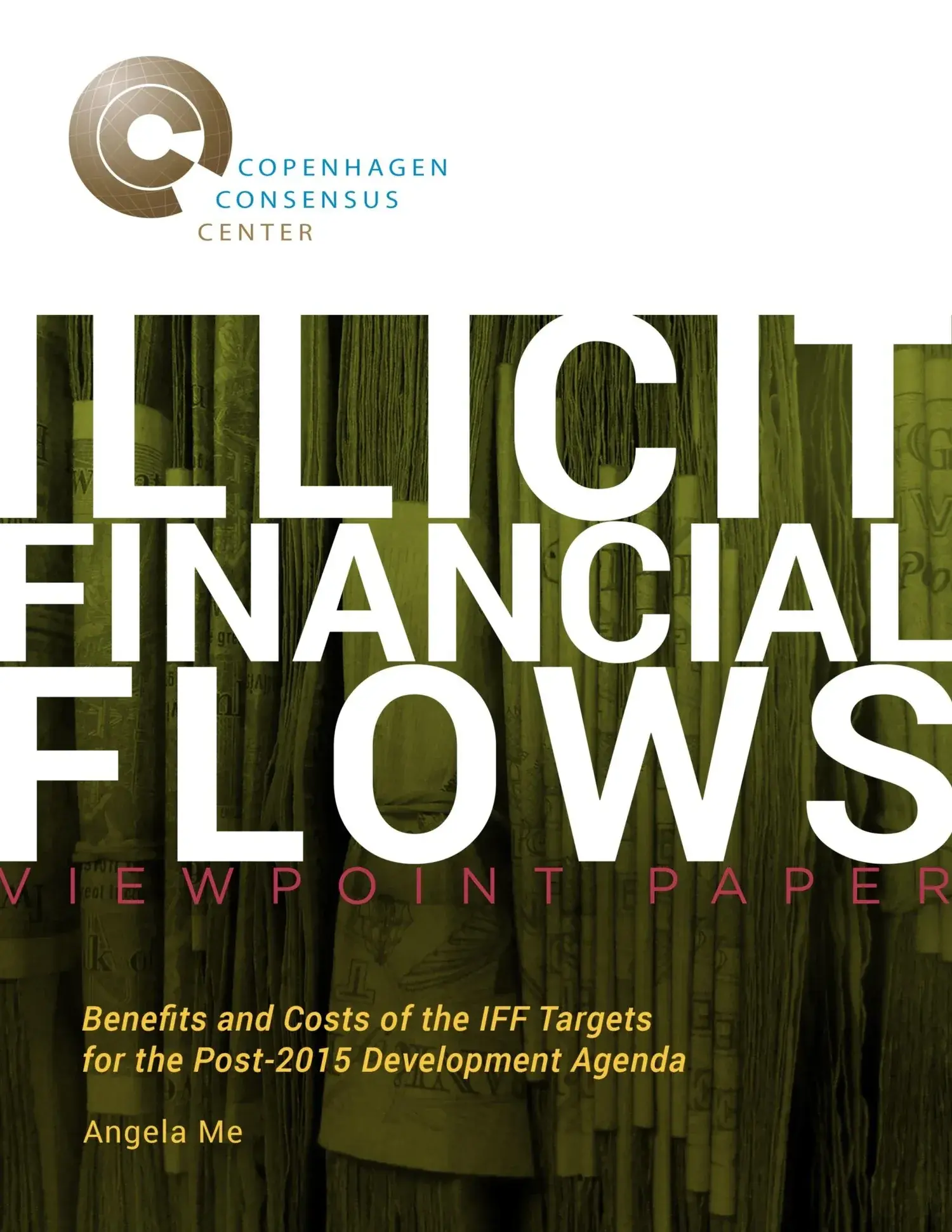
Viewpoint Paper
The view of Semkae Kilonzo of Policy Forum, finds that the assessment paper by Alex Cobham overlooked crucial perspectives and argues that greater inclusion and a multi-stakeholder approach to dialogue will help improve the applicability of the alternative targets proposed.
Greater inclusion and dialogue between South CSOs, the private sector, OECD and non-OECD governments will help correct [the proposed targets]."
-Semkae Kilonzo
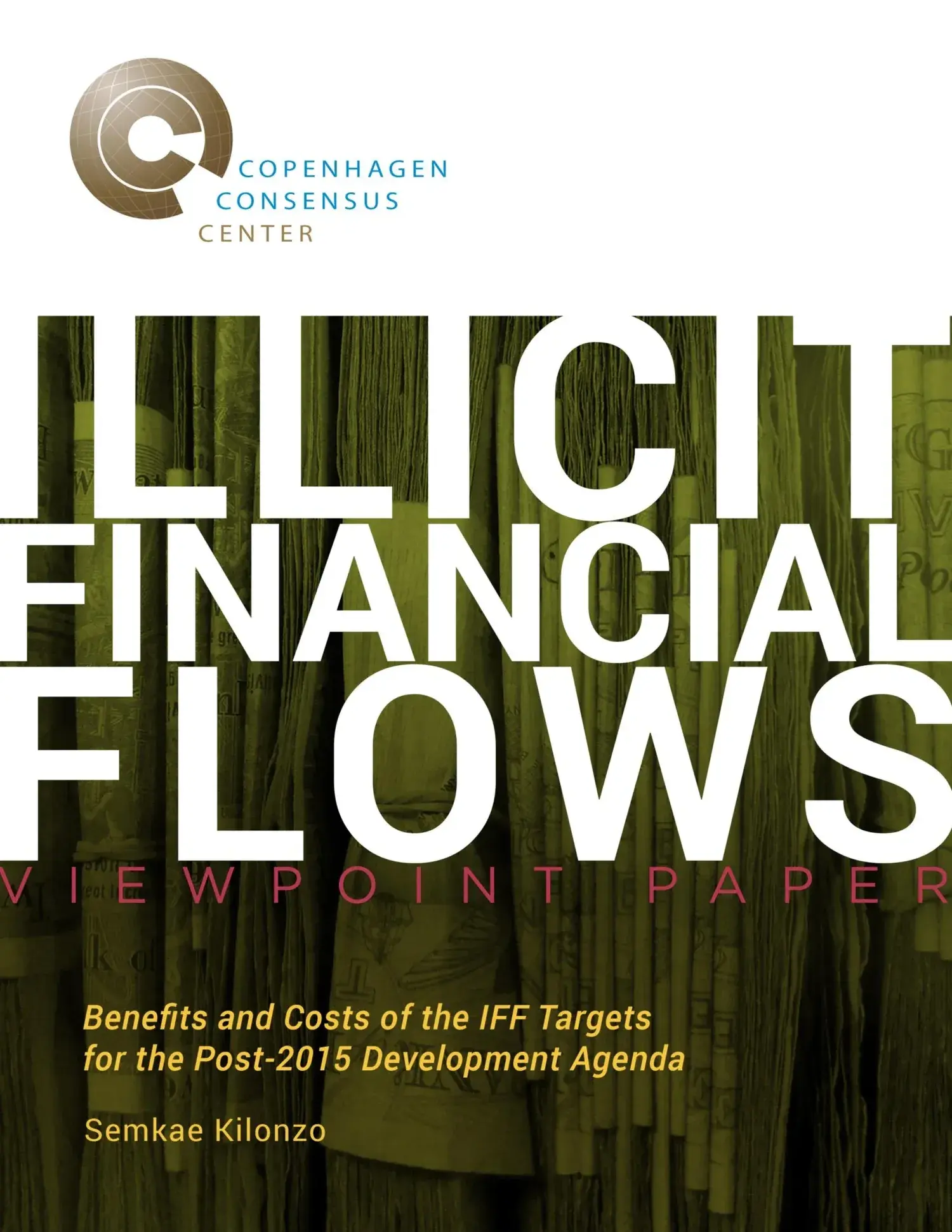
The Post-2015 Consensus project brings together 60 teams of economists with NGOs, international agencies and businesses to identify the targets with the greatest benefit-to-cost ratio for the UN's post-2015 development goals.






